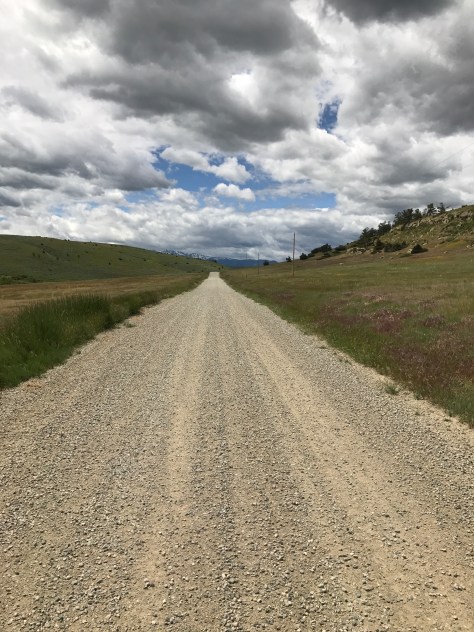 Last night’s (6/19/2019) news that Trapper Creek and the other Civilian Conservation Corps Job Corps will stay open is good news for everyone. Cutting Trapper Creek would have made little sense. Job Corps builds on common sense and conservative principles: Young Americans experiencing poverty need what Job Corps offers, “A hand up, not a hand-out.”
Last night’s (6/19/2019) news that Trapper Creek and the other Civilian Conservation Corps Job Corps will stay open is good news for everyone. Cutting Trapper Creek would have made little sense. Job Corps builds on common sense and conservative principles: Young Americans experiencing poverty need what Job Corps offers, “A hand up, not a hand-out.”
For 11 years I dodged deer and Bitterroot drivers on the 140 mile round trip from Missoula to work as a mental health consultant at Trapper Creek. From the moment I started back in 2003, I was hooked on Job Corps. I got hooked the same way most Job Corps employees get hooked. Helping young people turn their lives around is deeply fulfilling. I’m thrilled that the Trapper Creek magic will continue.
At Trapper, many students told me grim stories of their lives before Job Corps. These stories included school failure, chronic delinquency, gang and family violence, residential treatment, alcoholic black-outs, psychiatric hospitalization, foster care, parental suicides, and desperation so disturbing that teenagers regularly talked of putting the barrel of a gun into their mouths or a bottle of pills into their stomachs.
Trapper Creek magic often worked quickly. Students who came in on heavy doses of psychiatric medications were often medication-free in 3-6 months. Somehow, three meals a day, a safe place to live, being around adults who set limits and provided encouragement, opportunities for education, vocational training, and recreational pursuits accomplished the unlikely: mental disorders simply went away.
In one (of many) cases I treated a young man whose nightmares of a violent past were keeping him up at night. He showed up. We got to work. After 10 minutes, I stopped and asked him to reflect on his experience.
He turned his head back and forth and said, “My neck doesn’t hurt anymore.”
Then he grinned, “I feel like I can breathe again.”
And then, “I wish I’d known about this ten years ago.”
My favorite Job Corps scene was at an evening recreation event. I invited two counseling interns to stay late and attend “Trapper-Idol.” A man named “Fergie,” the recreation director, organized a talent show like you’ve never seen.
A short, stocky blonde girl stepped up to the microphone. She squeaked through a solo singing performance. She was completely vulnerable. My interns and I ached with anxiety for her. But we didn’t understand how Trapper-Idol worked. As she finished, the crowd of about 50 Job Corps students leapt to their feet, shouting and clapping in support. She bowed, walking off the stage to a series of hugs and high-fives.
On the drive home my interns and I couldn’t stop replaying the event. None of the performers had much talent, but they stepped up, performed, and were greeted with enthusiastic acceptance. We marveled at the therapeutic magic. These young people—young people who were never cool in school—got to have a health experience of social support and acceptance.
The Trapper-Idol experience is a microcosm of Trapper Creek magic. Students don’t have to be perfect—and they aren’t. What they have to do is show up, stand up, face their doubts, manage their behavior, and get to work.
I’m ecstatic that Trapper Creek didn’t die a cruel bureaucratic death. I’m happy for the community and for the Trapper employees. But mostly, I’m thrilled for the current and future students. Trapper Creek isn’t perfect, but for many students who have experienced poverty, it’s a balm of opportunity . . . and it’s one of the ways we can invest our tax dollars in America’s future.
Now I’m hoping for more Trapper Creek magic for decades to come.

Yay, Job Corps!! I saw a little magic here today myself!
So happy you are there!
Thank you for your support and description of Trapper Creek magic. This moved me to tears
Such an unnecessary conjured up politically based knee jerk decision to force threat on the Federal Job Corps in the country, shameful to say the least. You mention the phrase, “hand up, not a hand out” as for the Job Corps, an anti-poverty program for youth. To my notion, the phrase is one often forwarded by conservatives (usually the extremes) who view most poverty programs as “handouts”, as if to communicate recipients of aid as unworthy and lazy (no convincing evidenced based research for this). Job Corps is certainly a helpful program for youths experiencing poverty, on the other hand this does not mean those youths who don’t attend Job Corps and receive some benefits are simply, on the dole, getting “handouts”, hence undeserving.
Thanks Mike. As usual, I agree 100% with your comments . . . and I can hear your passion for helping loud and clear.
Thanks, John for telling some of these great stories as for your May contributions to young people who need the experience of empathy, authenticity and your positive regard for them. What a odel you are for the rest of us.
Thanks Gary! I hope to “odel” as much as I can. Haha. Hope you’re well.